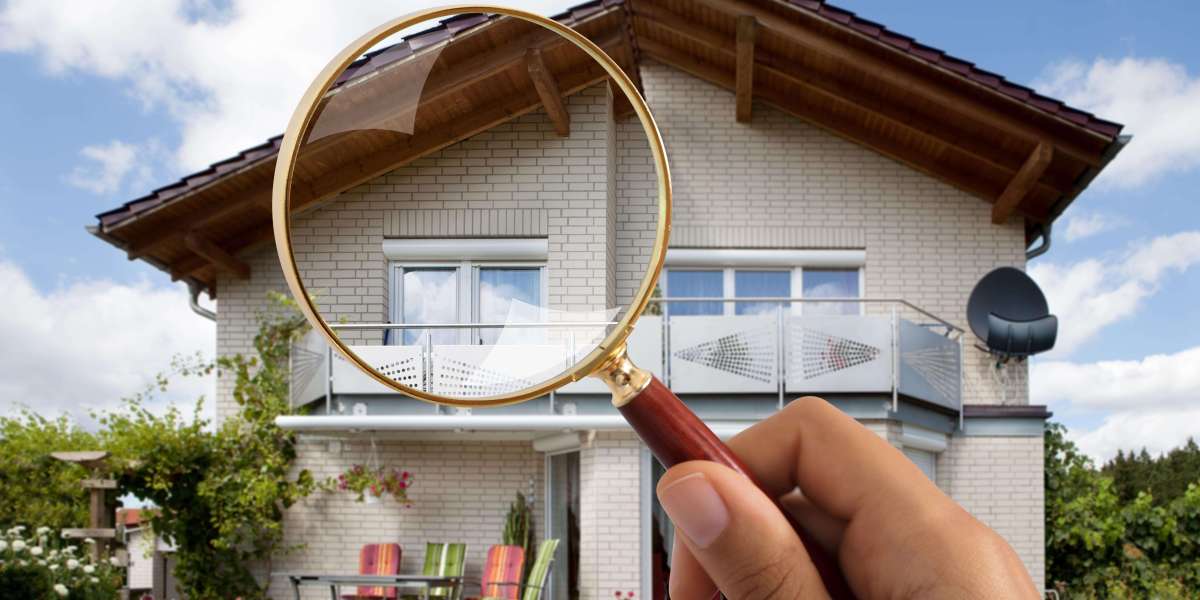You've finally found it—the perfect Bonita Springs property. Maybe it's a cozy home near Riverside Park with a lanai perfect for watching the sunset, or a modern condo with stunning views of the Estero Bay. You can already picture your life there. In this exciting moment, it's natural to focus on the beautiful finishes and ideal location. However, that fresh paint might be hiding water stains, and those gorgeous granite countertops could be distracting from an aging air conditioning system that's on its last legs.
This emotional high point is precisely when you need objective expertise the most. Buying a home is one of the most significant financial decisions you'll ever make, and in Southwest Florida's unique environment, properties face specific challenges that aren't always visible during a casual walkthrough. This is where the value of a professional Certified home inspection becomes undeniable. It's the crucial step that transforms uncertainty into clarity and hope into confidence.
The Hidden Risks in Paradise
Bonita Springs offers a wonderful quality of life, but our tropical climate and soil conditions create unique concerns for homeowners. The combination of intense sun, heavy seasonal rains, high humidity, and sandy soil can lead to specific issues that might go unnoticed by anyone other than a trained professional.
Why "It Looks Fine" Isn't Good Enough
When you're emotionally invested in a property, it's easy to overlook potential problems or dismiss them as minor. However, what appears to be a small issue could indicate a much larger, more expensive problem.
- The Deceptively "Updated" Property: Many sellers understandably focus on visible upgrades—new kitchen appliances, fresh paint, modern light fixtures. Meanwhile, crucial but less visible components like the electrical panel, plumbing pipes, or roof structure might be original to the home and nearing the end of their lifespan. Replacing these systems can cost thousands of dollars, quickly erasing any perceived value from the cosmetic updates.
- Regional Concerns Specific to Our Area: The Bonita Springs environment presents distinct challenges. Poor drainage combined with our heavy summer rains can lead to foundation issues in the sandy soil. Intense sunlight and salt air accelerate wear on roofs and exterior surfaces. Without specific knowledge of these regional factors, you might miss early warning signs of significant problems.
- The Domino Effect of Deferred Maintenance: A property might appear "well-maintained" on the surface while having years of small, overlooked issues. A minor roof leak that was patched rather than properly repaired, slowly dripping plumbing fixtures causing hidden water damage, or inadequate attic ventilation leading to moisture buildup—these problems accumulate, and the new owner inherits them all.
The Solution: What Certified Home Inspection Really Means
When you hire a professional for a Certified home inspection Bonita Springs FL, you're not just paying for someone to look at a house. You're investing in a systematic, thorough examination conducted by a qualified expert who understands both general construction principles and local building challenges.
The Meaning Behind the Certification
The term "certified" matters significantly in the home inspection industry. While Florida doesn't require state licensing for home inspectors, certification through recognized organizations like InterNACHI (International Association of Certified Home Inspectors) or ASHI (American Society of Home Inspectors) demonstrates a serious commitment to professionalism.
- Rigorous Training Requirements: Certified inspectors complete extensive training programs covering all aspects of home systems, from foundation to roof.
- Adherence to Standards of Practice: They follow strict guidelines that outline exactly what must be inspected and how the inspection should be conducted.
- Continuing Education: Certification requires ongoing education, ensuring inspectors stay current with new building technologies, materials, and safety standards.
- Code of Ethics: Certified inspectors commit to impartiality, putting their client's interests first.
A Comprehensive Examination Process
A certified home inspection is a detailed process that typically takes two to four hours, depending on the property's size and condition. The inspector follows a systematic approach to evaluate all accessible components of the property.
Structural Components and Exterior: The inspector examines the foundation, floors, walls, and roof structure for signs of settling or damage. They evaluate the exterior for proper drainage, condition of siding or stucco, and the effects of our local climate on these surfaces.
Roof and Attic: The roof covering, gutters, downspouts, and flashing are inspected for damage or wear. In the attic, the inspector checks for adequate ventilation, proper insulation, and signs of leaks or pest intrusion—common issues in our area.
Plumbing and Electrical Systems: All visible pipes, fixtures, and faucets are checked for proper operation and leaks. The electrical system is thoroughly evaluated, from the main service panel to outlets and light fixtures, with special attention to safety concerns.
HVAC Systems: Given our climate's dependence on air conditioning, this assessment is particularly important. The inspector operates the heating and cooling equipment to assess its condition and performance, checking for proper operation and potential lifespan concerns.
Interior Spaces: Walls, ceilings, floors, windows, and doors are all inspected for visible damage or issues. The inspector looks for signs of water damage, poor workmanship, or other concerns throughout the interior living spaces.
The Tangible Benefits: Confidence in Your Real Estate Decision
The cost of a certified home inspection is a small investment compared to the price of the property, but the return can be enormous. Here's how this process delivers genuine value and confidence.
For Buyers: Knowledge is Power
For homebuyers, the inspection report transforms your position from hopeful to informed.
- Strong Negotiating Position: With a detailed inspection report in hand, you can negotiate from a position of strength. You can request repairs, ask for a price reduction, or request a credit at closing to address the issues discovered. In some cases, discovering significant problems may give you grounds to walk away from the deal entirely while protecting your earnest money deposit.
- Realistic Understanding of the Property: The report helps you understand what you're truly buying—both the positive aspects and the areas needing attention. You'll know the approximate remaining lifespan of major systems, allowing you to budget for future repairs and replacements.
- Safety Assurance: The inspection can identify potential safety hazards like electrical problems, gas leaks, structural issues, or environmental concerns that might otherwise go unnoticed until they cause harm.
For Sellers: Transparency Sells
An increasing number of sellers are opting for pre-listing inspections, and for good reason.
- No Last-Minute Surprises: By identifying issues beforehand, you can address them on your own timeline or adjust your asking price accordingly. This prevents stressful renegotiations or even deal cancellations during the buyer's inspection period.
- Increased Buyer Confidence: Providing a recent inspection report demonstrates transparency and can make your property more attractive to potential buyers. It shows that you have nothing to hide and have maintained the property properly.
- Justification of Asking Price: A clean inspection report can support your asking price by demonstrating that the property is in good condition and doesn't require immediate major investments from the new owner.
For Everyone: Peace of Mind
Perhaps the most valuable benefit of a certified home inspection is the peace of mind it provides.
- Confidence in Your Decision: Whether you're moving forward with a purchase or deciding to walk away, you can do so with confidence, knowing your decision is based on professional assessment rather than emotion or guesswork.
- A Blueprint for Homeownership: The inspection report serves as a valuable maintenance guide, highlighting areas that need attention now and others that you should monitor over time.
- Protection of Your Investment: For most people, real estate represents their largest financial investment. A certified home inspection helps protect that investment by identifying potential problems before they become major expenses.
Making the Most of Your Certified Home Inspection
To maximize the value of your inspection:
- Choose Your Inspector Carefully: Look for certifications from recognized organizations and ask about their experience with Bonita Springs properties specifically.
- Be Present During the Inspection: Attending the inspection allows you to see issues firsthand, ask questions, and learn about your potential new home's systems and maintenance needs.
- Read the Entire Report Thoroughly: Don't just skim the summary. Take time to understand the severity of each issue noted and the inspector's recommendations.
- Consult Specialists When Needed: If the inspector identifies concerns that require further evaluation—such as structural issues, mold, or pest problems—follow up with the appropriate specialists.
In the dynamic Bonita Springs real estate market, a certified home inspection serves as your objective guide through an emotional process. It provides the factual foundation needed to navigate one of life's most significant financial decisions with assurance. Whether you're buying your dream home or selling a valued property, this crucial step ensures that all parties proceed with eyes wide open, protecting investments and paving the way for successful, confident real estate decisions.



